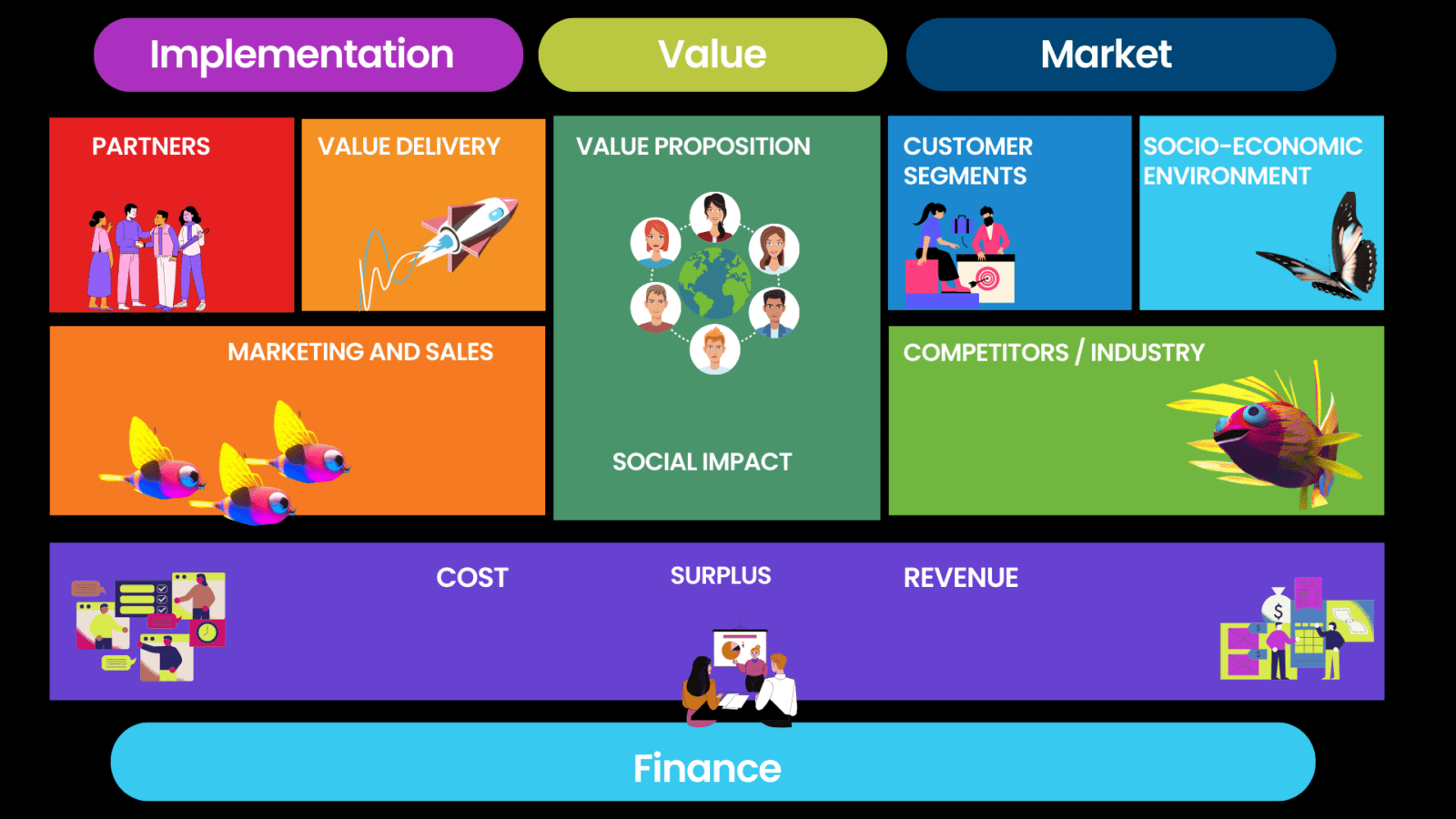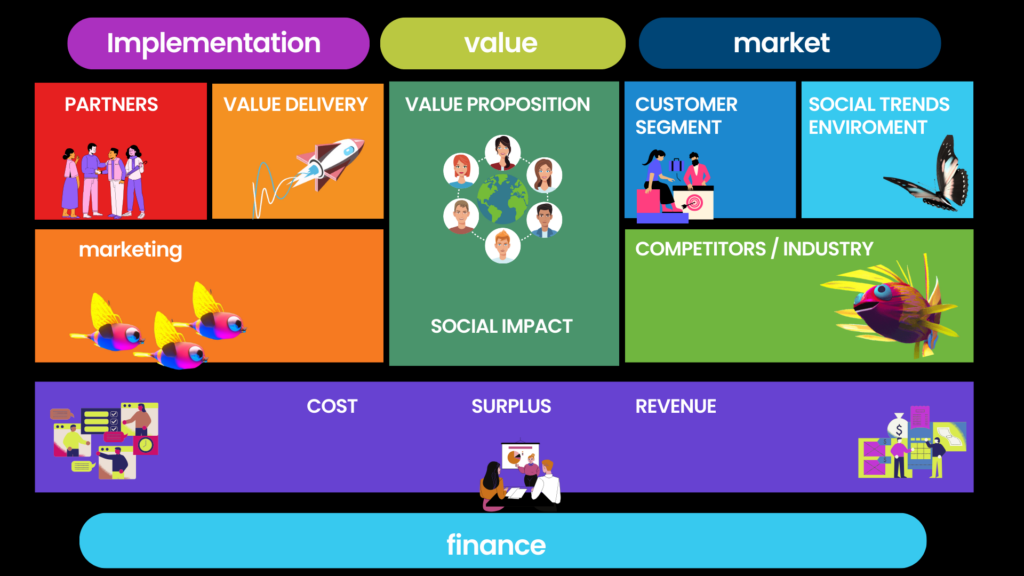课程
实施您的业务:从想法到平台
欢迎和课程信息
0/1根据需求开发产品
0/7启动行动
0/7规划您的商业模式
0/5社会商业模式视角
0/7发现您的 DSE 框架
0/9映射您自己的 DSE 框架
0/6创造社会价值的商业模式

A social business model consists of four essential sections: 价值主张, implementation, market dynamics, and financial aspects.
These sections provide crucial guidance to entrepreneurs, helping them achieve economic and social goals while ensuring financial sustainability and adaptability.
The SE Business Model shares commonalities with other models, including Value Production, 价值交付, Value Capture, and Value Distribution, akin to typical business model sections.
It incorporates elements from Lean Startup and Business Model Canvas, such as customer segmentation and financial considerations.
The canvas emphasizes that all businesses are inherently social, involving customers, 雇员, and suppliers, and must provide value and align with their mission for sustainable growth.
Building relationships with individuals is vital for supplier selection, workforce engagement, and product delivery, with market and marketing sections merging social aspects and business functions.
Alignment with Core Values: The SE Business Model Canvas emphasizes the integration of social and economic values into each block, mirroring the core value principle seen in the Business Model Canvas. It places a strong emphasis on addressing market challenges and ensuring alignment with customer needs.
I. Fundamental Sections of the Social Business Model
A. Key sections: 价值主张, implementation, market dynamics, and financial aspects
乙. Guidance offered by these sections to entrepreneurs for economic and social objectives, financial sustainability, and adaptability
C. Similarities with other business models like Lean Startup Canvas and Business Model Canvas
II. Integration of Value Delivery in the Social Business Model
A. Incorporation of value delivery component for problem-solving and metrics
乙. Inclusion of key resources and activities from the Business Model Canvas
C. Merging of elements like customer relationships and channels into marketing and competitor sections
D. Consideration of the unfair advantage concept from the lean canvas
III. The Social Perspective in Business Models
A. Belief that all businesses are inherently social entities
乙. Involvement of people as customers, 雇员, and suppliers
C. Emphasis on providing valuable solutions, positive outcomes, and sustainable growth aligned with the mission
IV. Integration of Market Forces and Sustainability
A. Role of market forces in addressing sustainability concerns B. Importance of nurturing relationships with individuals C. Merging the market aspect with a more social dimension in the market section
V. Interconnectedness of the Marketing Block
A. Complex relationship of the marketing block with value delivery and partners’ elements B. Importance of infusing both social and economic value into every block C. Focus on highlighting market challenges and alignment with customer needs
